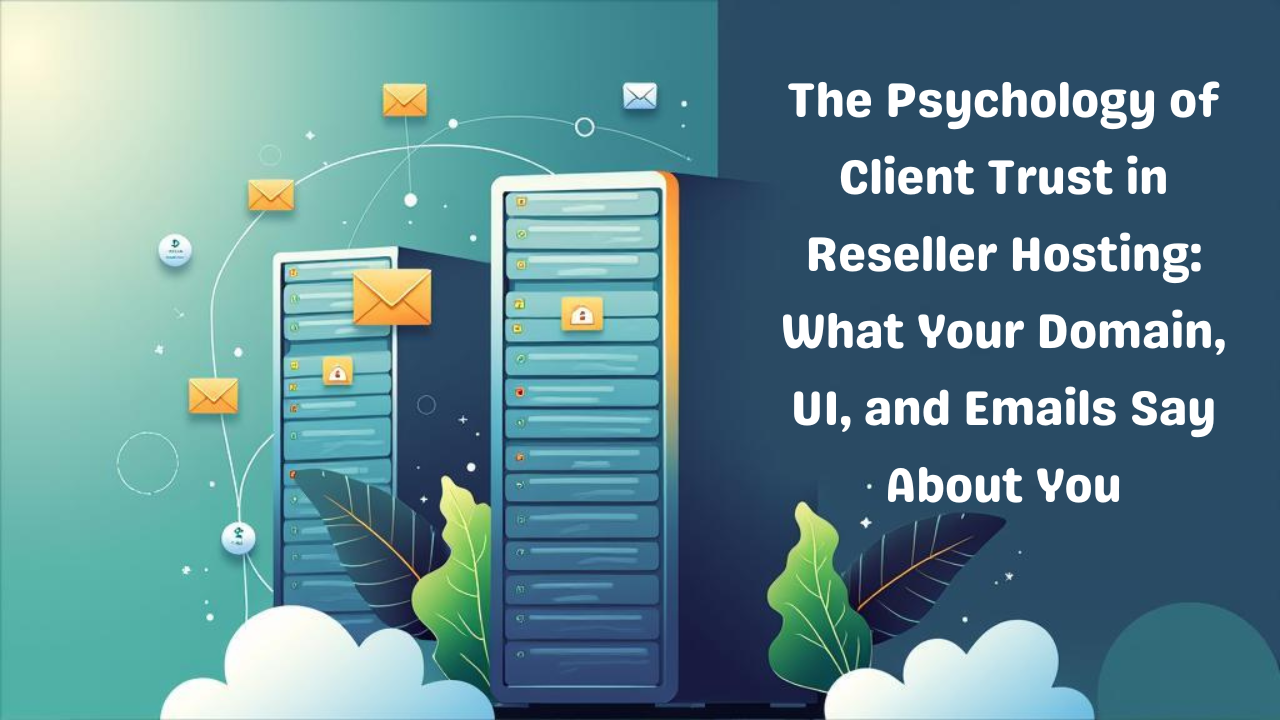In the reseller hosting industry, trust can hardly be built on pricing and competition alone. It is built on perception and the way branding communicates and behaves online. A new reseller or growing agency can make an objective determination of trust through email correspondence, the website interface, or the domain name without having explicit interaction, although tangible branding is not interactive. All these features are included in the reseller hosting price.
In terms of psychology, organized, serious, and intentional clean and relevant domains matter. When “swiftwebhosting1234.weebly.com” is replaced with “swiftwebhost.com”, trust branding is replete with professionalism. Neglecting the attentive emotional cues domain name would be converting traffic while achieving bounce. Hence, buy cheap domain and hosting that builds your brand’s credibility.
Business Emails: The Professional Edge You Can’t Ignore
Yourclient@ gmail. com can no longer be your email address, especially not when communicating with your clients. Every email is an opportunity to promote a business and communicate the brand image, as is the email itself. The email using the business domain promotes credibility, in this case, support@ your domain. The client perceives the brand as an accessible business and a secure email utilizes domain trust.
On a psychological level, domain-matching emails are perceived as organized and provide a degree of legitimacy. They signify graver enterprises. Clients associate branded emails with responsibility, which is vital when they’re entrusting you with their hosting. Missing out on this detail could spell disaster for client retention or conversion.
Tone and Consistency in Communication: Building Reliabillity
From sales pitches to support replies and newsletters, every piece of communication has a specific tone. Messaging that is respectful, clear, and consistent creates reliability, while a mixture of formal and casual tones creates confusion. Hypothetically speaking, if one of your emails is relaxed in tone and heavily formal in another, it raises uncertainty regarding your professionalism.
Identity depends greatly on consistency. A brand is given a voice that clients will recognize and gradually begin to trust. The psychological effect here is gentle: when all client and brand interactions share the same tone, it creates a sense of reliability and, with time, fosters loyalty. Clients become more inclined to stick around when emotionally attached and confident in your brand’s stability.
Read Also: Are Fancy Domains Like .tech or .store Worth It?
Trust Signals: Client Testimonials, SSL, And Openness
Trust can be visually communicated by a badge, client testimonials, SSL, refund policies, and SLA policies, which offer safety. Trust can be gained if someone sees that other people are trusting your services as well as if they see that you’ve put safeguards in place.
Case studies and Google reviews are used as evidence that a particular service is used by people and has helped them in one way or the other: it’s not a form of bragging. Providing clear and precise information on prices, hosting services, and even when the customer support is available also deals with uncertainty which is fundamental in the formation of trust.
Even if your branding and design are perfect, the trust a person has in your business is likely to be affected by your support system. Trust can be broken if replies are late, with no empathy and no clear instructions as to what should be done. Your trust and your client’s trust can be reinforced by speedy, friendly, and helpful support interactions.
Integrations, live chat, and AI-powered tools, as well as ticketing systems, can streamline processes and enhance customer experiences. However, true long-term customer loyalty is achieved when businesses are truly accessible and responsive and focus on finding solutions. While hosting is a technical product, trust is always an emotion. Clients become loyal customers when the perceive that a business has their back.
Wrap Up
As a conclusion, it is evident that, in reseller hosting, customer experience is just as important as the product. The customer’s interaction with the domain name, the UI design, the email identity, and the manner of communication are all trust signals that silently work towards establishing confidence in the brand. These elements, whether users are conscious or subconscious of it, form a psychological profile that customers analyze prior to any interaction.
You strengthen your brand when you enhance the visual and emotional signals that create trust. Improving these elements lays the groundwork for long-term client relationships, improves referrals, and boosts conversion rates. In hosting as in life, trust is something that is earned and every aspect of your digital presence can either reinforce it or undermine it.

